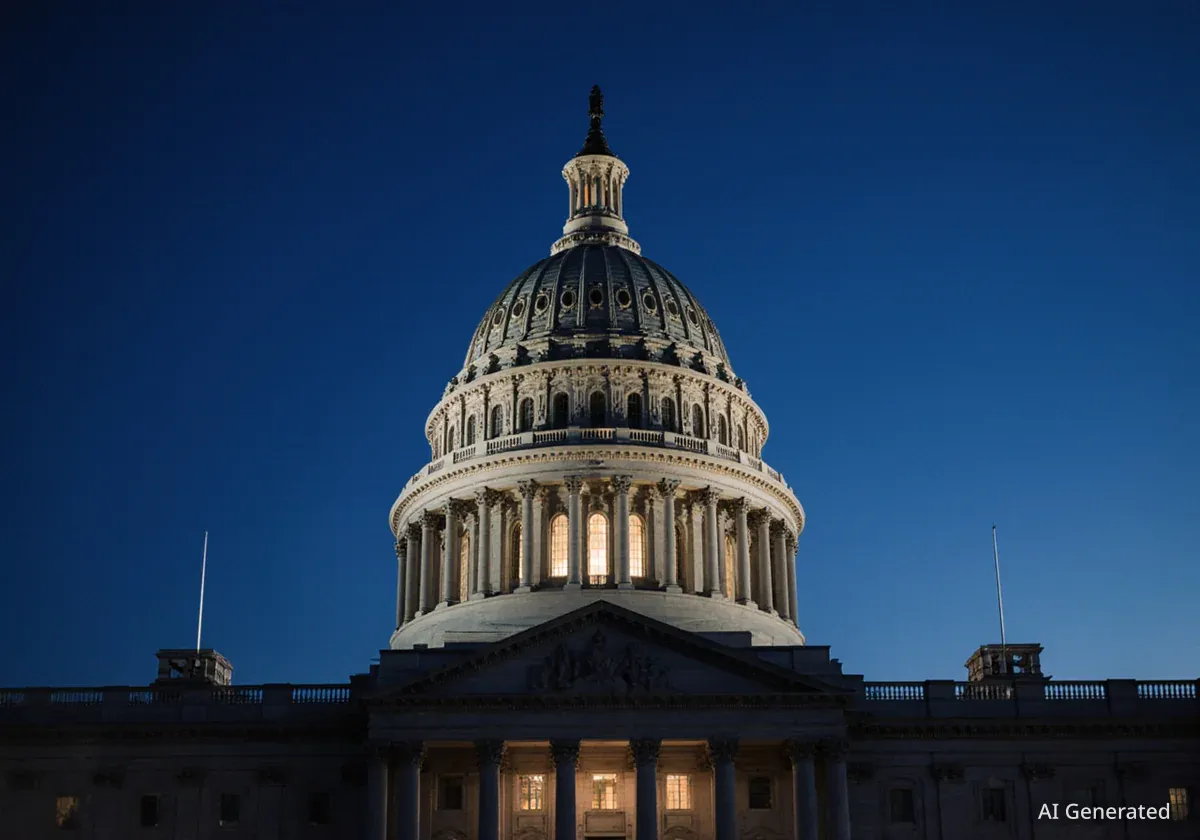California's largest high school district by student enrollment and geographic area, the Kern High School District, has approved a new policy that limits participation in girls' sports to students who are biologically female. The Board of Trustees passed the resolution in a narrow 3-2 vote, positioning the district in direct opposition to current California state law.
Key Takeaways
- The Kern High School District board voted 3-2 to adopt a policy restricting girls' sports to biological females.
- The district serves over 40,000 students, making it the largest in California to pass such a measure.
- This decision conflicts with a 2013 California state law that protects the right of transgender students to participate in sports aligned with their gender identity.
- Kern is the 16th educational entity in California to adopt a similar resolution, indicating a growing local movement against the state's policy.
- The vote occurs amid ongoing legal challenges, including a U.S. Department of Justice lawsuit against California over its transgender athlete policies.
Kern District Adopts Controversial Sports Policy
The Kern High School District (KHSD), a massive educational system with more than 40,000 students across 31 schools, is now at the center of a statewide debate. On Monday, its board voted to implement a resolution based on Title IX that defines participation in female sports by sex assigned at birth. This move makes KHSD the largest and most prominent district in California to formally challenge the state's established protections for transgender student-athletes.
The resolution was not developed in isolation. It was authored by Sonja Shaw, the Board of Education President for the Chino Valley Unified School District, which previously passed a similar measure. This shared framework highlights a coordinated effort among certain school boards to create a unified front against state guidelines.
"I authored this resolution to be the voice of our communities — to stand with our girls and protect the truth that should’ve never been silenced," Shaw stated. "Boys are boys. Girls are girls... It’s time to put fairness, truth, and common sense back into education."
The decision by the Kern board adds to a growing list of California school districts, individual schools, and educational boards taking a similar stance. With this vote, Kern becomes the 16th such entity to formally adopt a policy that challenges the state's approach to transgender athlete inclusion.
A Direct Conflict with California State Law
The new policy adopted by the Kern High School District directly conflicts with California law. Since 2013, the state has legally protected the rights of transgender students to participate in school activities, including sports, that align with their gender identity. This law is administered by the California Interscholastic Federation (CIF), the governing body for high school sports in the state.
Background on California Law
In 2013, then-Governor Jerry Brown signed Assembly Bill 1266, also known as the "School Success and Opportunity Act." The law explicitly states that a student must be permitted to participate in sex-segregated school programs and activities, including athletic teams and competitions, consistent with their gender identity, irrespective of the gender listed on the pupil’s records. The CIF has consistently stated it will follow this existing state law.
The recent actions by Kern and other districts create a complex legal and administrative situation. While the local boards have passed these resolutions, the CIF's authority and state law have historically superseded district-level policies in matters of athletic eligibility. This sets the stage for potential legal battles over enforcement and compliance.
The state-level conflict is further complicated by federal involvement. The U.S. Department of Justice has filed a lawsuit against California's educational agencies, alleging that the state's policy of allowing biological males to compete in girls' sports is a violation of Title IX. Similar federal legal actions have been initiated in other states, including Maine and Minnesota, making this a national issue with significant legal implications.
Public Opinion and Broader Context
The debate over transgender athletes in sports is not limited to school boards and courtrooms. Public opinion in California appears to lean in favor of the policies being adopted by districts like Kern. A bipartisan survey from the Public Policy Institute of California (PPIC) provided insight into the views of residents.
California Public Opinion Survey
- 65% of adults support requiring transgender athletes to compete on teams matching the sex they were assigned at birth.
- 64% of likely voters hold the same view.
- Support is even higher among public school parents, with 71% favoring such a requirement.
Source: Public Policy Institute of California
This sentiment is reflected in several recent incidents and lawsuits across the state that have drawn public attention. In Riverside County, two female cross country runners filed a lawsuit against their school district after a transgender athlete reportedly took a varsity spot. In a separate case in the same county, female volleyball players sued the Jurupa Unified School District regarding a transgender teammate with whom they shared a court and locker room for three seasons.
These local disputes underscore the real-world complexities that students, parents, and administrators are facing as they navigate the intersection of law, policy, and personal beliefs.
State Leadership and Future Implications
Despite the growing number of districts adopting these resolutions, the official stance from the state government remains unchanged. Governor Gavin Newsom's office has previously clarified its position, emphasizing the separation of powers between the governor's office and the bodies that regulate school sports.
In a statement, the governor's office noted that the CIF is an independent nonprofit and the California Department of Education is a separate constitutional office. It pointed out that both entities follow the 2013 law signed by Governor Jerry Brown, not Governor Newsom.
"For the law to change, the legislature would need to send the Governor a bill. They have not," the statement from Newsom's office read.
This places the responsibility for any potential changes squarely on the California State Legislature. Until a new bill is passed and signed into law, the 2013 statute remains the official policy for the entire state. The actions of the Kern High School District and others are therefore seen as policy statements and potential legal challenges rather than immediate changes to how sports are governed statewide.
As more districts join this movement, the pressure on state lawmakers and the CIF will likely increase. The outcome of the Department of Justice's lawsuit could also play a pivotal role in shaping the future of high school sports in California and across the nation. For now, the Kern High School District's vote marks a significant escalation in the ongoing debate over fairness, inclusion, and the rights of all students in school athletics.





